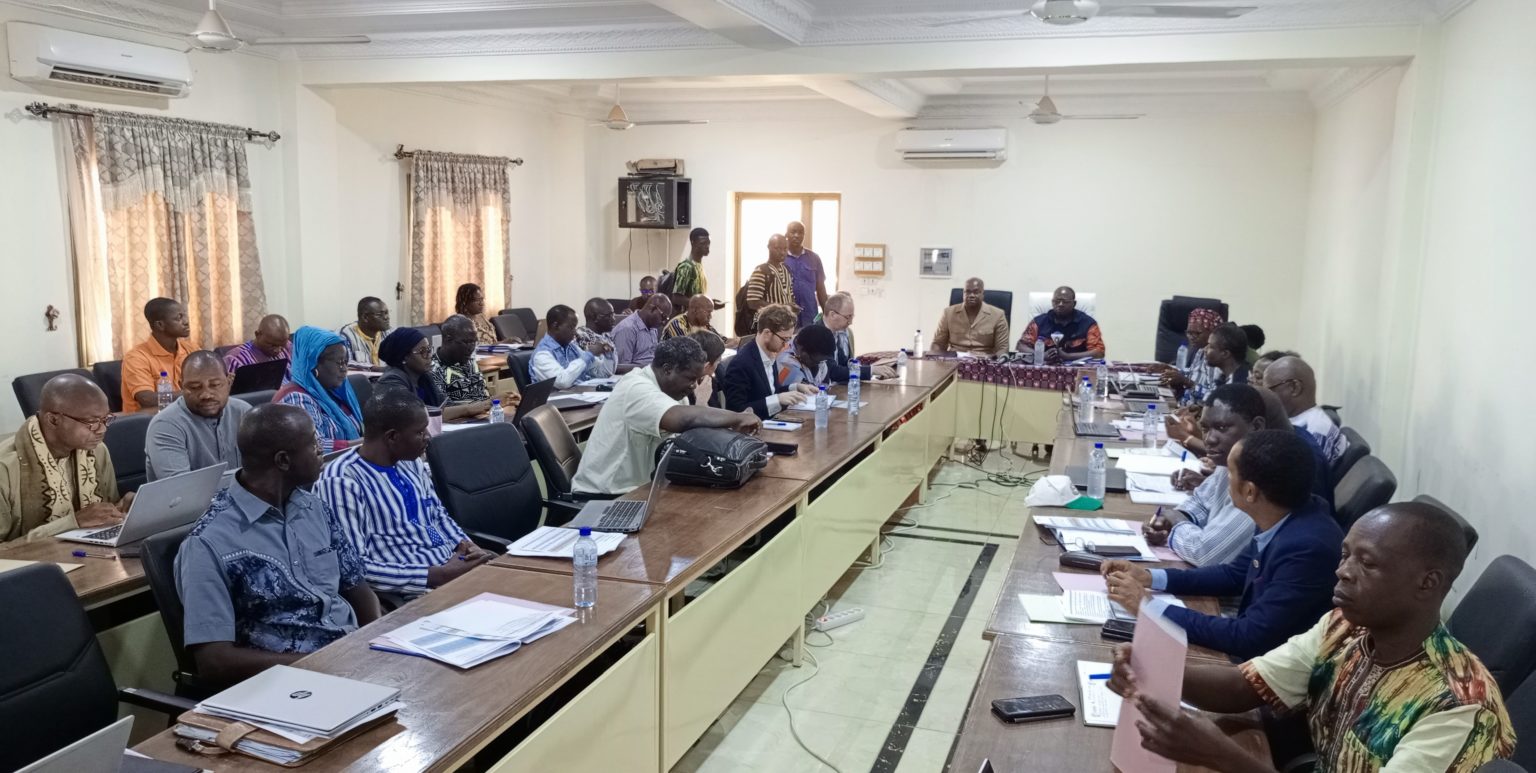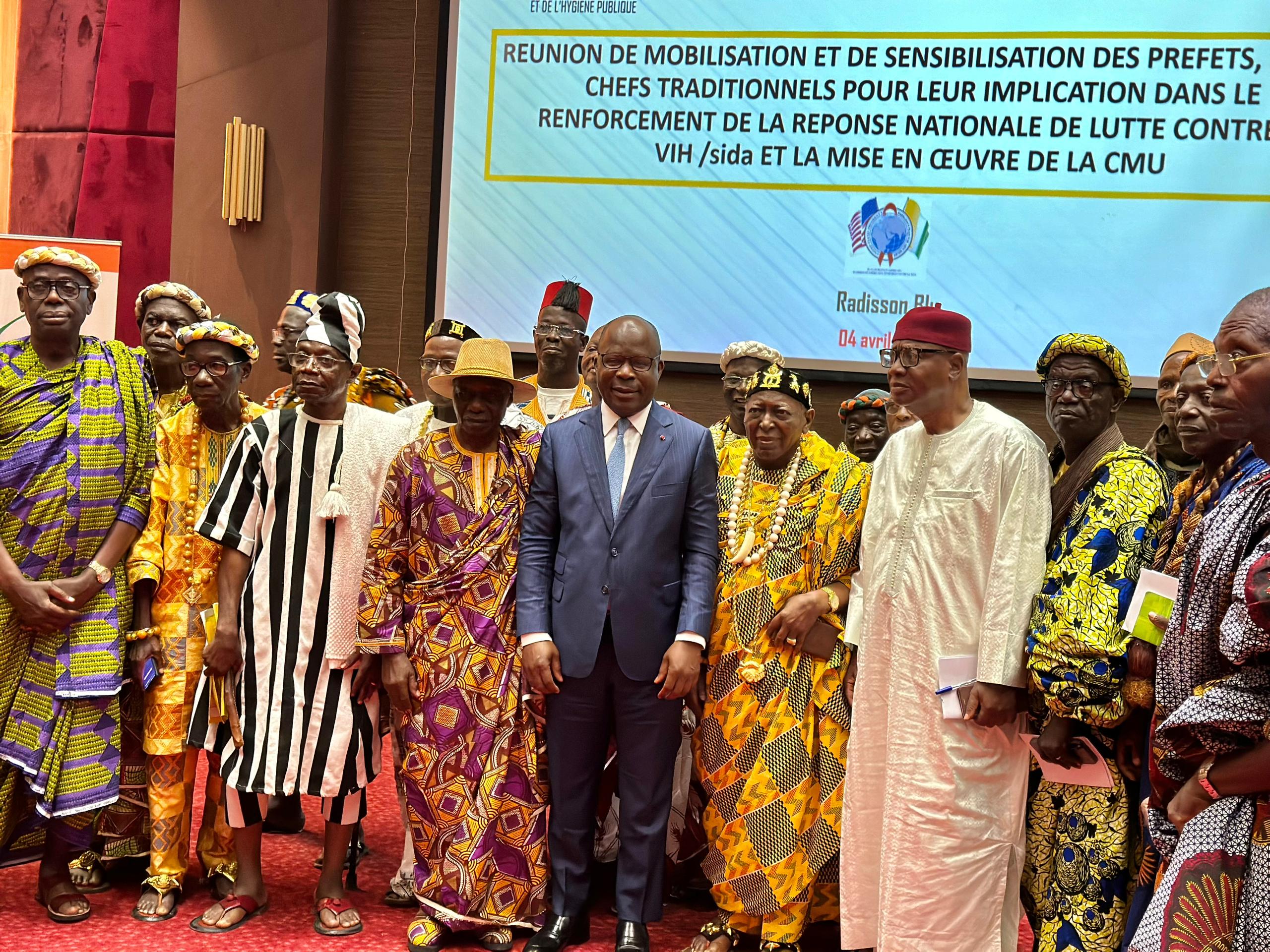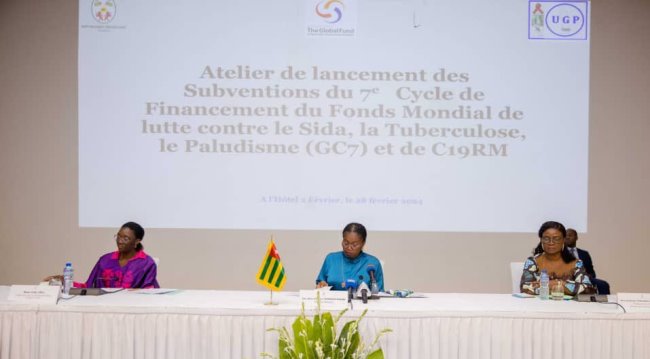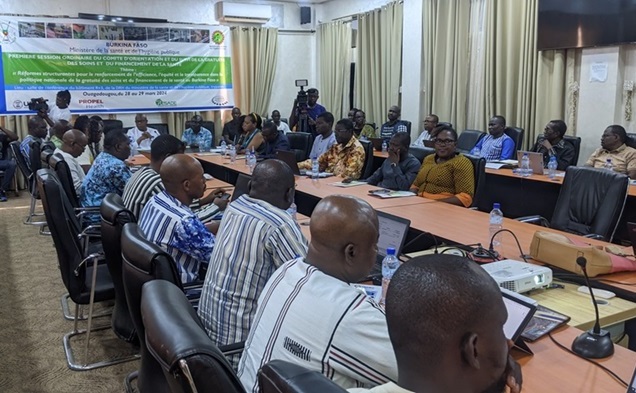After a slowdown in growth linked to COVID-19 in 2020, Niger's economic recovery was hit by a series of climatic and security shocks in 2021 that deteriorated many economic and social indicators.Unlike most countries in the region, Niger showed a certain resilience in...
Health financing for women and children amid climate change
The article published in BMJ Global Health explores the risks climate change poses to women children and adolescents, particularly in the most affected regions, and suggests ways to bridge health and climate finance to protect these groups. Women, children, and...

Social protection: 10 priorities presented to the World Bank
Members of the Permanent Secretariat for Social Protection held a working session with a World Bank delegation on Thursday, April 04, 2024 in Ouagadougou. During the meeting, the Burkinabe government unveiled its main priorities in the field of social security....

Traditional chiefs mobilized to promote CMU
To achieve the goal of zero cases of HIV/AIDS by 2030 and to work towards good universal health coverage, the Ivorian Minister in charge of Health, mobilized kings and traditional chiefs on Thursday April 04, 2024, during a meeting in the Ivorian capital.The Minister...

Health: a CFAF 74 billion grant from the Global Fund for Togo, over the period 2024-2026
Togo benefits from grants from the 7th funding round of the Global Fund (GC7) to fight AIDS, tuberculosis, malaria and Covid 19 (C19RM), for the period 2024-2026. The announcement was made on Wednesday February 28 in Lomé, at a workshop launched by the Prime Minister,...
The impact of health insurance on maternal and reproductive health service utilization and financial protection in low- and lower middle-income countries
Health insurance expansion positively impacts maternal and reproductive health service utilisation but lacks evidence for postnatal care, contraception access, and financial protection in low- and lower-middle-income countriesAmidst efforts to achieve universal health...

Free healthcare and healthcare financing: Nearly 9 billion FCFA saved by digitizing invoices
In Ouagadougou, the Minister of Health presided over the closing ceremony of the first ordinary session of the Comité d'orientation et de suivi de la gratuité des soins et du financement de la santé. The technicians spent two days examining the efficiency of free...
Financial barriers to primary health care in Aotearoa New Zealand
Co-payment is required for visits to general practitioners and for collecting prescriptions. This study aims to investigate the impact of user co-payments on access to health care, with a focus on inequities for indigenous Māori populations in New Zealand. Findings...
Extending financial protection by tackling non-financial barriers: A case study from Senegal
The case study focuses on health equity to identify promising approaches and strategies drawn from Senegal's experience to ensure more equitable financial protection, particularly for underserved and socially excluded populations.The aim of this case study in Senegal...
Benin National Development Plan 2018-2025
Based on the Benin 2025 Alafia vision, the 2018-2025 National Development Plan incorporates new economic and social development challenges at national, African and international levels. The NDP 2018-2025 is structured around the following major themes: i) human...

Dental care for Estonians became more accessible in 2024 with increased benefits and lowered deductibles
In 2024, the Estonian Health Fund will allocate over 103 million euros to dental care, the largest investment in oral health. Benefits for vulnerable groups (pregnant women, mothers of young children, pensioners) will increase from 85 to 105 euros, with deductibles...
A single guide to implementing and managing the process of targeting poor households -Benin
Benin has validated a unique methodology for identifying the poorest for social protection programs. This approach recommends a pre-identification of the poorest by the communities and a final refinement through a PMT survey to determine the poverty levels of each...
Insurance program for human capital reinforcement (ARCH) – Benin
Project ARCH is part of the Beninese government's drive to offer a minimum package of basic social services to the most disadvantaged. It is part of the national institutional framework and aims to develop synergies with other projects and initiatives already...
Muskoka study on CSU in Benin
This research aims to help participating countries meet the challenge of building on what already exists to move towards CSU. The aim is to document the extent to which the 'CSU' systems of the countries participating in the study meet the criteria of the Learning...

Lithuanians’ social health protection improved in 2024 with expanded benefits from the Compulsory Health Insurance Fund
Starting next year, patients will benefit from faster access to healthcare services, while healthcare professionals will experience a reduced administrative workload and an increase in salaries. These reforms are also aimed at improving the availability of essential...
